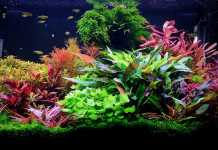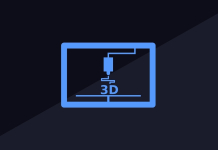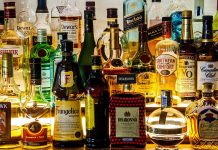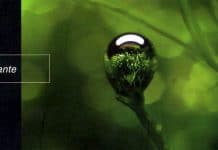How an author rises
Q. You graduated in microbiology and worked with the US government as a researcher in cell biology.
It would be logical to think that your publications are relevant to your studies, nevertheless among them we have the book ecology of aquarium plants, a history book of your family and even a recipe book for the pressure cooker. Why did you think about writing on subjects that are so different and not related to your daily work?
This gives us the impression of a curious, profound, eclectic personality … but who is Diana Walstad really?
A. I hope that people will gauge me by my book(s), not my personality.
After 2000, pressure cooking and history interested me. With the success of the aquarium book—first published in 1999—I mistakenly thought that books I wrote on these new subjects might also do well. As with the aquarium book, I believed that I could make a unique contribution. For the presure cooking book (2012), I showed the actual temperature of various foods while they were being pressure-cooked. (The recipes were incidentaI “window-dressing” to the heat measurements.). While my home cooking has improved somewhat, this book was a total failure, and I removed it from the book market. The average Italian is probably a far better cook than I will ever be!
Despite a similar lack of commercial success, the family history book (2017) was/is a much more satisfying project. Around 2007, I wrote a little story about the tragic death of my grandmother Rose and the crisis it created for my mother, aunt, grandfather, etc. I also wrote another little story about my grandfather Lambert working in the Burma oilfields (1915-1916) as a teenager. Apparently, these two stories prompted a second cousin who I had never met, to send me (in 2011) a CD containing family photos and about 15 private interviews that he had conducted of family members. With this juicy material, I saw an opportunity to write a nuanced, interesting story about my mother’s family. I began tracking down relatives that I had never met, reading and learning about history, and paying genealogists to fill in the «black holes». I was discovering things. It was fun! Around 2015, I began to tackle my father’s side of the family. Using his «war diaries», I chose to focus on his time spent as a medical officer in China during World War II. With this, I plunged into Chinese history and learned more about my father as a person. The process of writing the family history book was stimulating; the results, deeply satisfying. The excitement while writing this book was identical to preparing Ecology of the Planted Aquarium.
Some people never stray far from their career subjects. If I had been a professor, I might have written a book on my profession. But I was simply an enthusiastic laboratory technician who worked on a variety of subjects—cystic fibrosis, cell-signaling pathways, sickle cell anemia, etc. My earlier work as a technician gave me a research «mind-set». I like science and can understand the scientific literature. I realized I could apply that scientific mind-set to learn more about other subjects that interested me. AND I had 3 wonderful university libraries nearby that I could tap into. I had the time, enthusiasm, resources. Why not?
Q. Why are you interested in aquariums? What do you find so interesting, fascinating, to make you spend time, energy and money in this hobby?
A. I think that your readers already know why, as they are also “vicitims” of the same attraction. I’ve always loved aquariums, fish and plants. An aquarium is a little natural world all of its own. As a child I was catching mosquito fish and tadpoles, raising livebearers in bowls. Surely not many things can beat watching a female guppy give birth to live young. My mother always had ponds and aquariums where we lived. For the ponds, I would help her mix and pour the concrete—no plastic pools and liners in those days. She had fantail goldfish that I could watch for hours; their flowing fins looked like angel wings.
Q. Let’s talk about your work Ecology of the Planted Aquarium. Which was the initial aim of this work?
A. The aim was to bring common sense and useful scientific information into the aquarium hobby. I was increasingly dismayed by the utter nonsense prevailing in the aquarium hobby.
Since I was a teenager, I had always tried—without success—to keep plants in an aquarium. In 1987 when I started up with tanks again, I decided to set up a tank with a soil underlayer. Despite conventional wisdom that «gravel was good enough», I couldn’t help but notice that in nature, aquatic plants grew in soil/sediment. Much to my delight, the plants in my first soil-containing tank grew like crazy.
At the same time, I was increasingly drawn to scientific literature. When I had a hydra infestation in my fish tanks, I visited the university’s biology library for the first time. The resulting article (Hydra Eradication: The Egg is Everything) was published in 1991 in a national aquarium magazine. After that, I got serious about studying and learning about aquatic plants, their ecology, etc. I photocopied and collected hundreds of research papers. I set up a subject index—which is now over a hundred pages—to organize the papers and make sense of it all. I continue to use this index to find papers.
If I hadn’t been making exciting discoveries, I would not have pursued the project. But everywhere I turned, it seemed I was discovering something new and interesting. Another example: I and most hobbyists at the time assumed that aquarium plant species from softwater habitats should be grown in softwater. But that did not fit with the fact that one aquarium plant nursery was growing all their plants in very, very hardwater. How could that be? So in 1998, I did an experiment comparing the growth of both hardwater and softwater species. Amazingly, all the plant species grew better in hardwater and an alkaline soil than in softwater and a peat soil.
Q. You could have done research on aquatic plant fertilization and ended up with a line of fertilizers or fertile soils with your name.
A. What would be exciting or interesting about selling fertilizers?
Q. You chose instead to take an almost opposite position (direction), probably not the easiest one to take. What was the reason for this choice?
A. Most hobbyists keep aquariums as a microcosm of the natural world. Thus, I will always lean towards a more natural way of doing things. When I learned that a combination of fishfood, hardwater, and soil contains all the nutrients that plants need, why would I advocate adding fertilizers to a tank? CO2 fertilization makes plants grow fast, but it forces you to add other fertilizers to maintain that accelerated growth.
Q. We know that it was self-published: did you have any difficulty regarding the content?
A. Making the quantitative conversions (millimoles to ppm, etc) was the most tedious part.
Q. Would you like to share with us about your editorial adventure?
A. Around 1998, I first tried to find an academic publisher, but got no response. Then, I submitted the manuscript to various university presses and got some interest. For about a year then, I continued to edit the book and to add a chapter (Practical Aquarium Setup and Maintenance). Finally, I settled on one university press that was very interested. However upon approaching the contract stage, the editor indicated that the book would have to be condensed substantially, perhaps by 50%. The ‘Questions and Answers’, footnotes, etc would probably be deleted. The final straw was when the editor asked me if I would give up the usual 5% book royalty. I realized that I would lose control of my book; it would be just an expensive little book for the library market.
I stopped resenting the onerous publishing process when I realized the financial risk involved for publishers with a «first-time author». Moreover, if I truly believed in my book, then I should be willing to back it up financially. So I found a competent, honest printing house. I have never regretted the decision to self-publish. By eliminating the publishing «middle man», I could publish my work exactly as I wrote it, make a little money, and offer it at a reasonable price to hobbyists.





















